Reflections by Salma Khatibu: My experiences in Helsinki, Finland
My trip from Tanzania to Finland to attend the Sustainability Science Days 2023 (May 21–June 2, 2023) was a great and unforgettable one. I want to thank the Global Innovation Network for Teaching and Learning (GINTL) for their coordination. I am very appreciative of the help and excellent service I received even prior to the trip, as well as for the hospitality and assurance that I would have a comfortable time in Helsinki. I have discovered wonderful things that can be difficult to address in my country in a very unique way. Every moment was absolutely unique and unforgettable, from the stunning island scenery to the delectable local cuisine. I cannot express how grateful I am for all of your efforts in coordinating and planning every aspect of our trip and our time in Helsinki. I sincerely appreciate the care you took to ensure we had the finest experience possible and the attention to detail you put forth. I had a lot of fun trekking around, checking out the neighborhood shops and restaurants, and experimenting with new foods. Who could forget the fantastic times we had while walking throughout the city, of course?
Photo: Salma Khatibu at the University of Helsinki’s Language Center (Finnish: Kielikeskus)
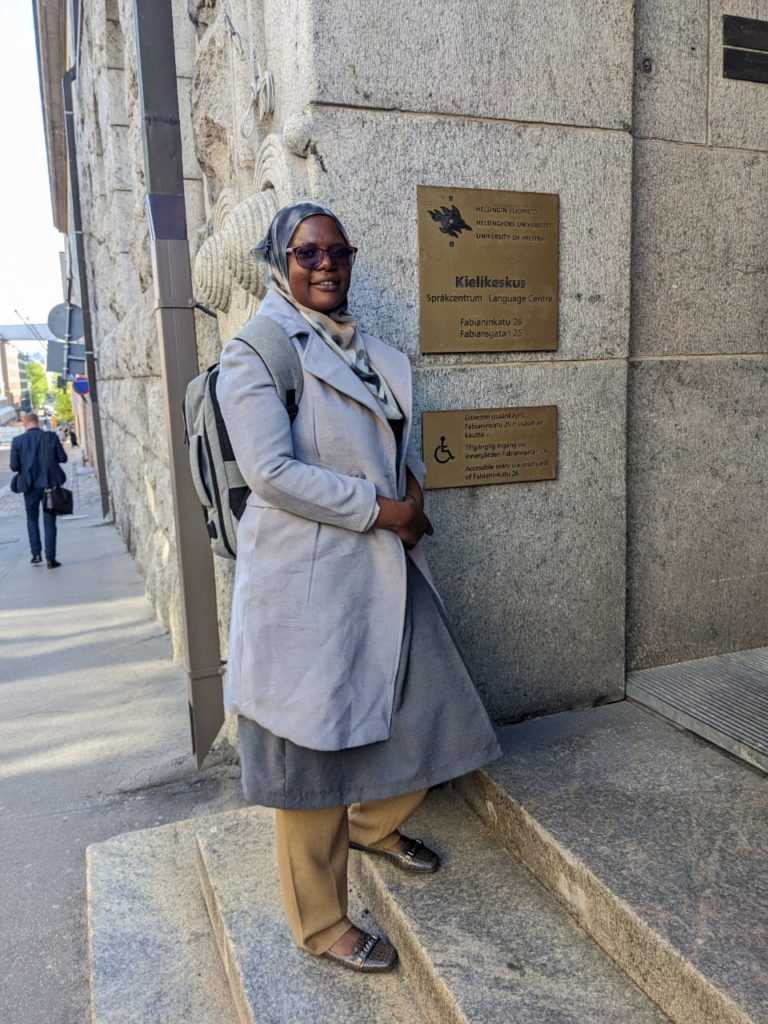
The most important things I learned inside and outside the conference
Organisation of the trip
I wanted to take this chance to express my gratitude and compliments for the manner the University of Helsinki and GINTL handled and organised both the conference and my attendance thereof. Everything that was scheduled to happen was completed on time and according to schedule. This has made the conference incredibly exciting and one-of-a-kind. However, I have discovered and learned that early planning is essential for any worthwhile and engaging endeavour. The team’s enthusiasm, vigor, and engaging style were much valued and contributed to the event’s unforgettable quality.
Finnish educational structure
I discovered and learned many things as a result of this trip, both inside and outside of the conference. Although the list is long, the most memorable lesson I am taking away from the conference and from Finland more generally is Finland’s great approach to managing education and teaching techniques. In Finland, municipalities are responsible for managing education at the most elementary levels. Contrary to the methods I learned about at the conference, in my own country, the ministry (which is responsible for education) is the overseer of all learning processes and related issues, from the lowest levels of schooling to higher education. I noted this down as a challenge for Tanzania to address, because disseminating education management to the municipal level is likely to lighten the load on the central government and streamline administration as a whole. On top of this outsourcing of education management, the manner the Finnish educational curriculum is developed – emphasising learning by doing and experiencing rather than memorising from books – equips students with a high potential for creativity and innovation.
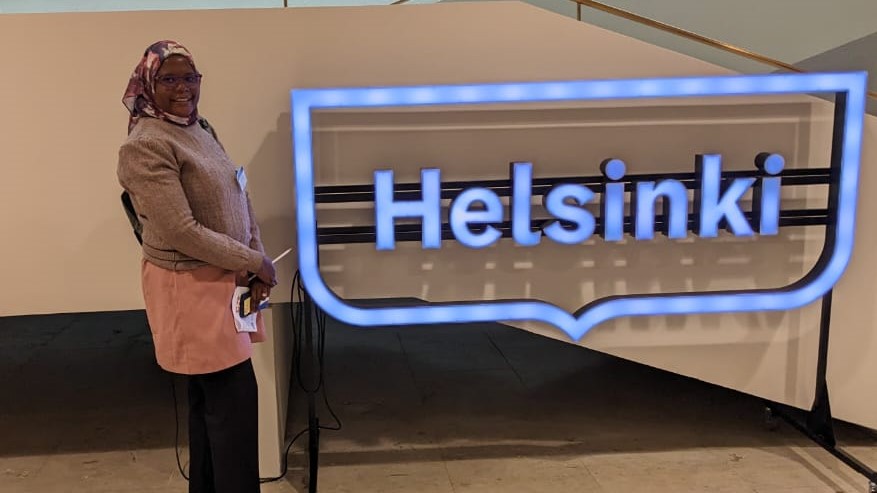
Sustainability in Finland
Another takeaway is how sustainability issues have been made feasible in Finland, to the point where they are regarded as one of the most delicate national issues. Finland is one of the very few nations on the verge of achieving the Sustainable Development Global 2030 Agenda as a result of making every individual responsible for their part in doing so. As a personal challenge, I try to take a similar attitude to the problem and encourage the government of my nation to do the same.
Women’s contributions to research
Furthermore, I appreciate how women took the lead in providing ideas and opinions at the conference. I was taken by surprise, since it was my assumption that ladies rarely speak in front of large crowds. I have learned something crucial here, and I will encourage other ladies to speak up in the same way. Additionally, young girls are leading the way in education. In my nation, it is exceedingly uncommon to encounter a man who can lead the discussion and contribute, let alone a female child. On this topic, I will encourage my students at the university to think that these things are, in fact, entirely feasible.
Helsinki as a clean city
The cleanliness that is ingrained in Helsinki society as a whole is what most thrilled me. Helsinki is an extremely clean city as a result. Even in the cafeteria, there exists the good habit to separate the trash and return your own plates after eating. This is something that our nation can also do. It is a fantastic technique to guarantee urban sustainability.

Things that need attention
No place is perfect; there are a number of issues that still need to be resolved. For instance, the discussion of sustainability at the conference seemed to favour Finland or the Global North more than the Global South, leaving out their predicament. Personally, I believe that this is an incorrect approach, since climate change is a problem that calls for a worldwide dialogue to examine the many steps being taken and the difficulties that result from those steps.
Additionally, I saw that the time provided for the conference parallel sessions was insufficient because there were too many topics to cover. As a result, the attendees did not have enough time to discuss the other presentations in-depth. I propose that the time be prolonged so that the participants can enjoy themselves and ask more in-depth questions about the presentations.
Photo: Khatibu (left) with Kamuti Mulonda from Zambia (middle) and Vedasto Hamza Mhanga from Tanzania (right) in front of the University of Helsinki’s Metsätalo building, at which part of the conference was held
All in all, I would like to express my sincere gratitude and appreciation to the whole GINTL team for their hospitality and for having us be part of their project output. I promise that I will share the experience I had in Helsinki with my colleagues, in the hopes that with continued knowledge sharing, global education development is right around the corner.
Reflections by Vedasto Hamza: SSD2023 rekindle optimism for the future of our planet
I was one of the African guests at the SSD2023 Conference, invited by the Global Innovation Network for Teaching and Learning (GINTL) and the SSD organisers. This event served as a vital platform to rekindle optimism and reinforce that everyone has a role to play in the sustainability of our planet. It was a powerful reminder that even our small actions can profoundly impact collective efforts to address sustainability challenges. During the conference, we had the opportunity to network and explore innovative approaches to comprehending and tackling sustainability issues from various multidisciplinary perspectives. The SSD2023 significantly boosted my career by expanding my professional network for future collaborations.
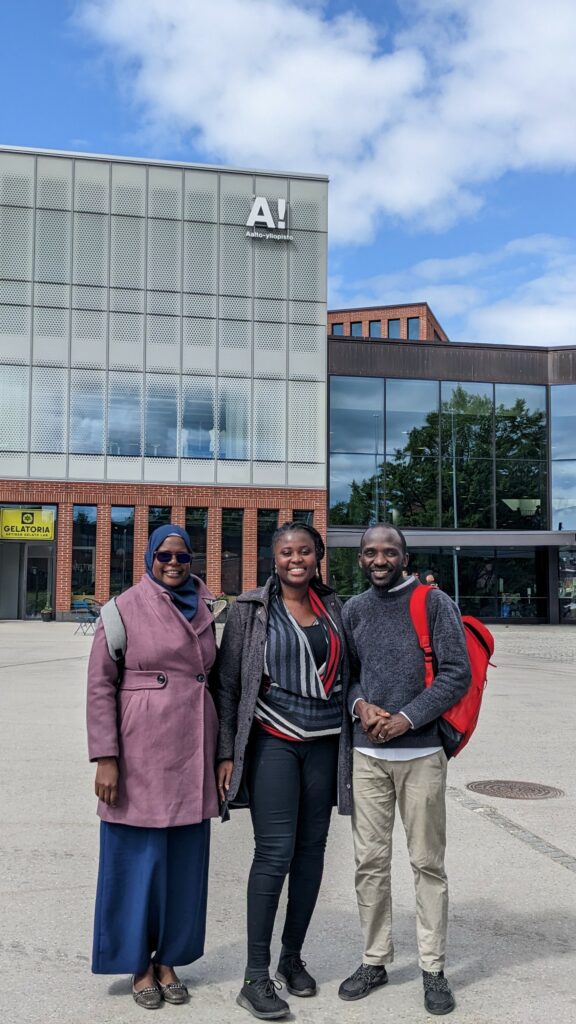
Global sustainability challenges: “No one is safe!”
The sustainable future of global and planetary sustainability depends on our collective efforts to address sustainability challenges. These challenges, which are not new, are evident in our daily teaching and research activities. They encompass several crises that transcend national borders and afflict human development in the 21st century, such as climate change, resource depletion, unemployment, inequality, and poverty. By acknowledging and actively tackling these challenges, we can pave the way for a more sustainable future.
Climate change, for instance, impacts everyone, but its effects are severe for the poorest communities in the global south. Due to their limited resources, these vulnerable populations face significant challenges in adapting to and coping with climate change. Drawing an example from my rural community in Ilula, Iringa region, we have witnessed the impacts in three decades, specifically a severe threat to food security due to the decline in rain-fed agricultural productivity. This highlights the disproportionate impacts of climate change.
Photo: Salma Khatibu (left), Jacqueline Obeng (middle), and Vedasto Hamza (right) and colleagues during a visit to Aalto University, Finland
SSD2023 challenges researchers and practitioners to rethink their roles towards a sustainable future
Being among the GINTL and SSD2023 invitees from Africa, I had an opportunity to participate in conference events and activities in Helsinki, Finland, between 23rd May and 1st June 2023. The presentations and discussions from the conference have significantly complemented my perspectives and revitalised my hopes that I can contribute something towards the future of planetary sustainability. In the following paragraphs, I briefly share my key take-home messages.
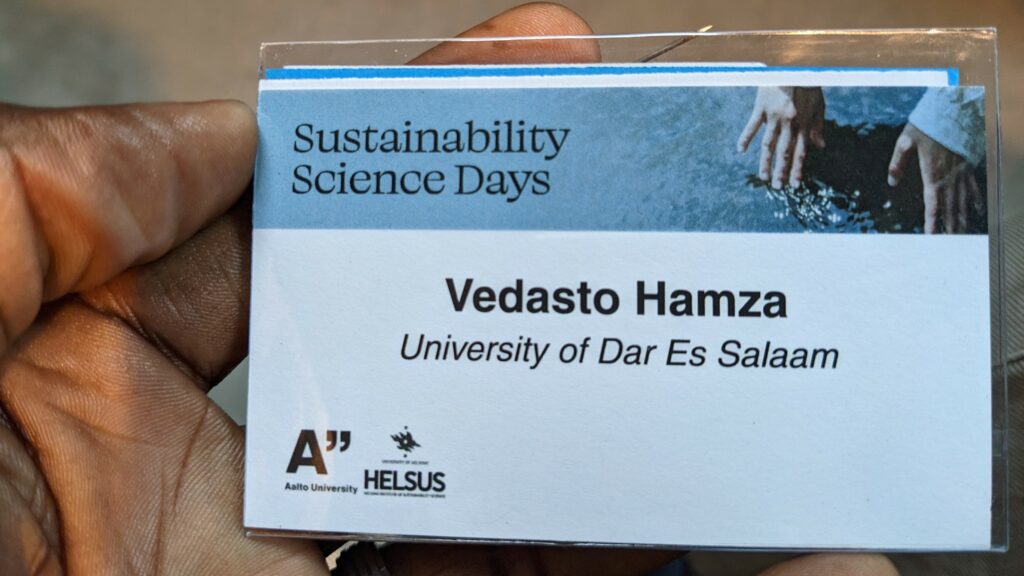
Climate change education for the future
In the pre-conference session, I attended Professor Sakari Tolppanen‘s pre-conference keynote presentation on climate change education’s current and future goals. The presenter eloquently cited various examples of increased willingness to take action and being climate-sensitive, specifically among students after being properly educated. The presentation’s take-home message is that as an academician and researcher, I have a role in making climate change education impactful by planting climate-sensitivity behaviour among students.
Promoting co-creation to foster partnerships
I had the privilege of participating in the EDUCase Platform Fireside chat parallel session, which proved to be an enlightening experience. During the session, I gained valuable insights into collaborative problem-based research between researchers and students from the North and South. As a participant, I emphasised the importance of prioritising knowledge co-creation to ensure such collaborations’ long-term sustainability. My concern arose from the observation that many programs resulting from North-South collaborations tend to fade away once the funding period ends. By promoting co-creation, we can foster stronger and more enduring partnerships that yield lasting benefits for all involved parties.
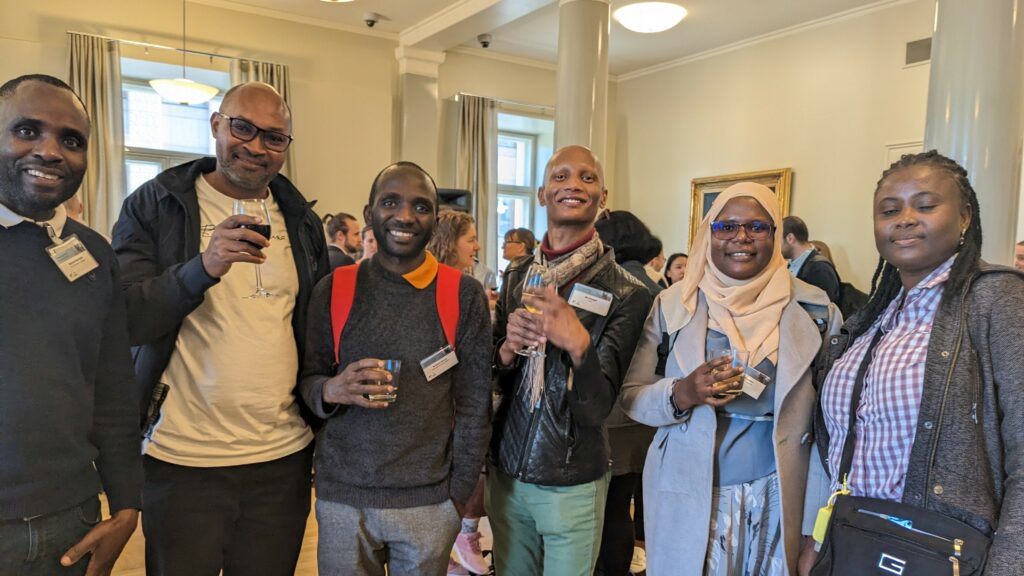
Regenerative systems
Ioan Fazey’s keynote presentation, “Regenerative systems: what are they, and how can they be encouraged?” left a profound impact. He highlighted our moral obligation to confront sustainability challenges. Urging us to come to our senses, Ioan emphasised the need to save our planet. He called for openness, collaboration, and empathy to combat destructive human production and consumption patterns at every level. His inspiring insights motivated us to be proactive agents of positive change as we recognise the importance of taking action for a sustainable future.
The pressing question remains: how can we awaken the global wealthiest individuals who are major contributors to crises like climate change through their production and consumption patterns? Ioan’s powerful presentation should ignite debates and prompt us to reevaluate our lifestyles and behaviours that disregard planetary sustainability. By engaging with Ioan’s ideas, we should seek solutions that will compel the wealthy minority to recognise their role and responsibility in addressing these challenges. We can strive to bring about positive change and a more sustainable future for our planet through collective efforts and shared understanding.
Individuals’ roles in sustainability
The presentations at SSD2023 were both critical and thought-provoking, igniting discussions about the survival of humankind in the future. Likewise, these sessions prompted me to reevaluate my own role in ensuring the sustainability of our planet. The conference served as a powerful wake-up call, rekindling my optimism and fueling my determination to contribute more towards a sustainable future. It reminded me that even my small actions carry significance in this global endeavour. I firmly believe that sustainability starts with each of us, and I am now committed to amplifying my efforts to create a positive impact sustainability of the planet.
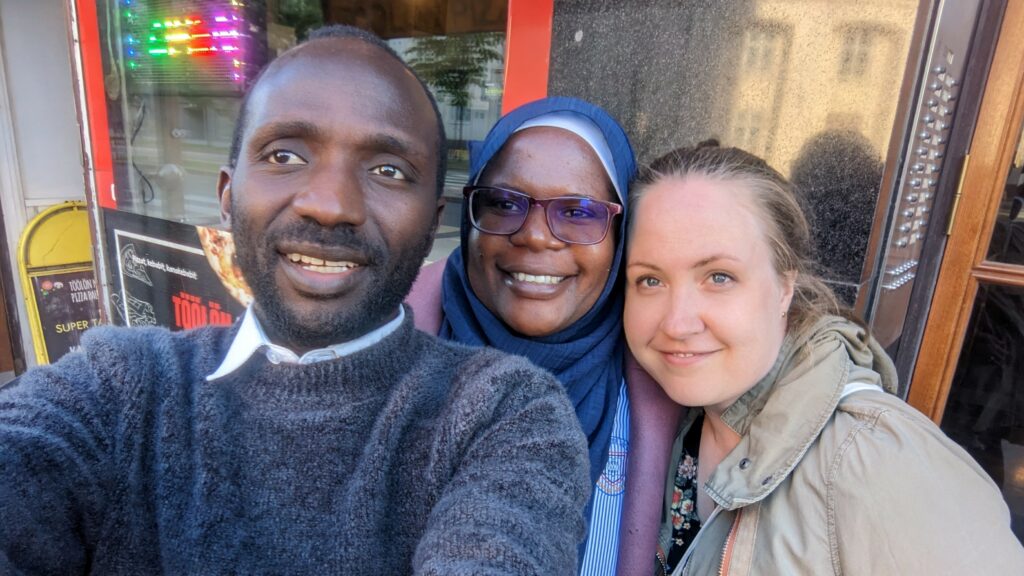
How did my participation in the SSD2023 impact my future in sustainability sciences?
The SSD2023 Conference proved to be relevant to my career as a researcher and academician in Development Studies. It provided an opportunity to expand my professional network, paving the way for potential partnerships and collaborations in the future. As a result of these new connections, I am already co-authoring two manuscripts on sustainability to be submitted to the 6th EAI International Conference on Emerging Technologies for Developing Countries scheduled in December 2023. Moreover, the SSD2023 has served as a motivating force, inspiring me to be more actively engaged in sustainability research, publications, and policy advocacy.
I wholeheartedly express my gratitude to the GINTL and SSD teams for sponsoring my participation in SSD2023. This experience has been remarkable, providing me with invaluable insights into multidisciplinary approaches to sustainability and a glimpse into Finnish culture. I appreciate this wonderful opportunity that has enriched my professional and personal growth.
Authors
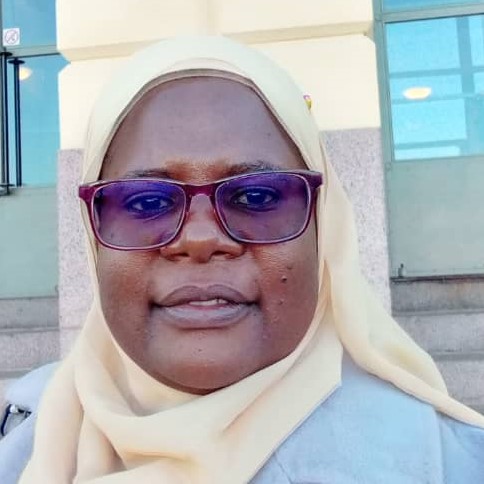
Salma Khatibu, PhD
Lecturer at the Institute of Development Studies, University of Dodoma, Tanzania
salma.kifile[at]udom.ac.tz
slmkhatibu95[at]gmail.com
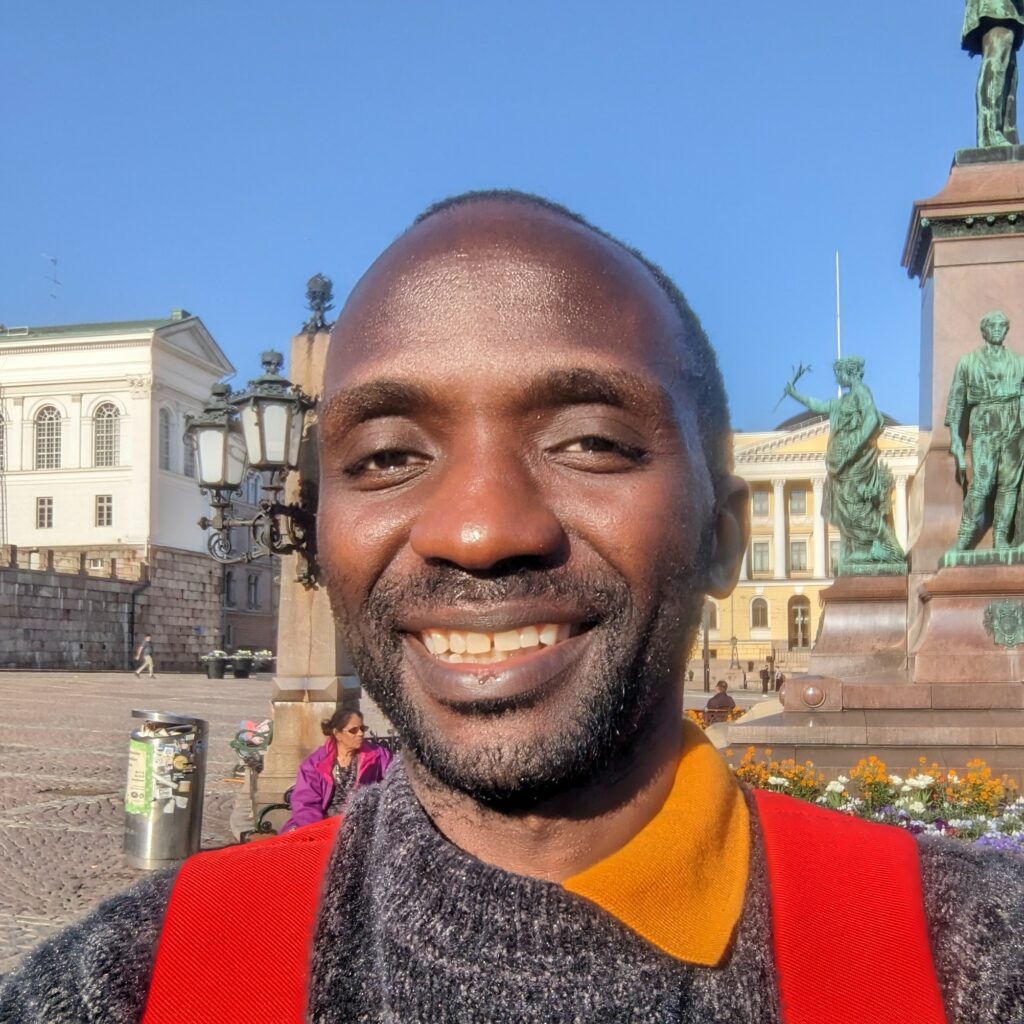
Vedasto Hamza
Assistant Lecturer and Doctoral Student at the Institute of Development Studies, University of Dar es Salaam, Tanzania
hamza.vedasto[at]udsm.ac.tz
vedastohamza[at]gmail.com













